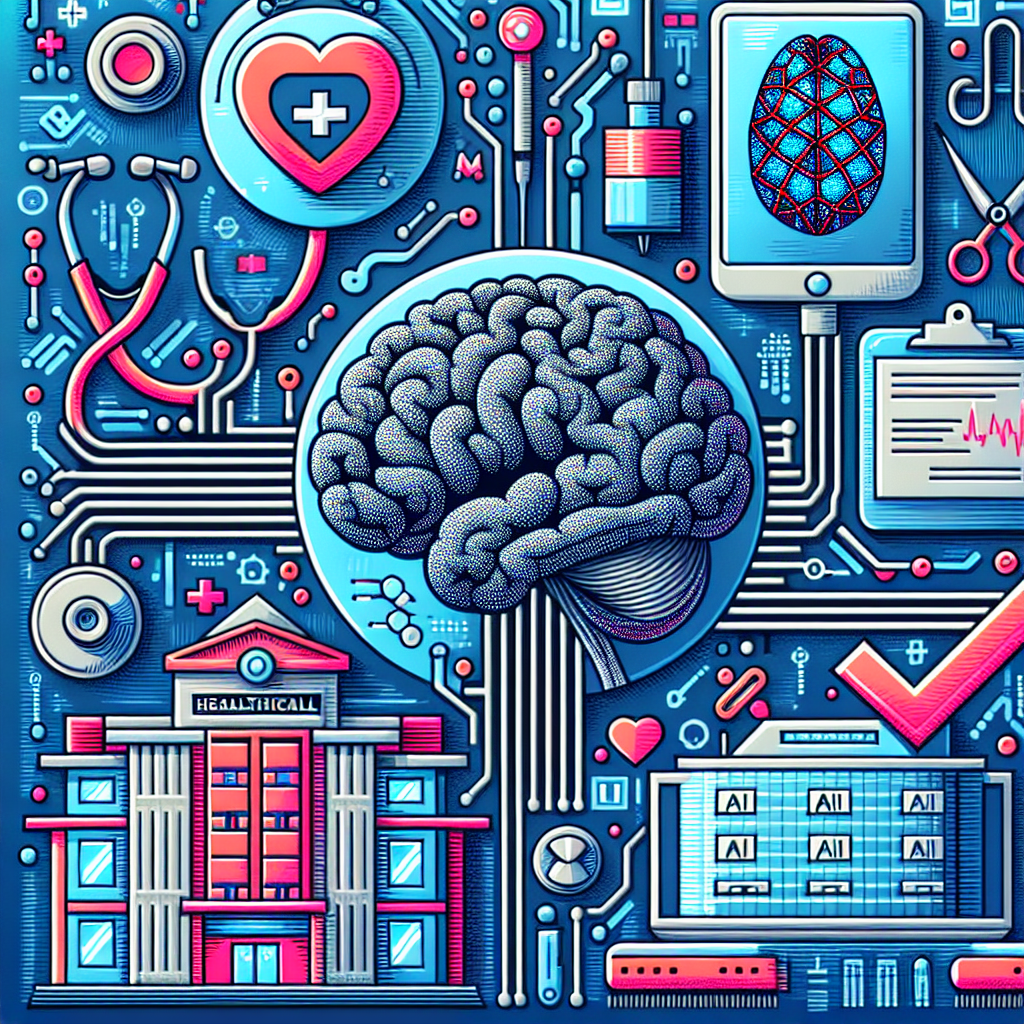Artificial Intelligence (AI) has revolutionized many industries, and healthcare is no exception. AI has the potential to greatly improve healthcare quality assurance by helping healthcare providers identify areas for improvement, streamline processes, and ultimately enhance patient care. In this article, we will explore the role of AI in healthcare quality assurance and its impact on the healthcare industry.
AI in Healthcare Quality Assurance
Healthcare quality assurance is a critical aspect of the healthcare industry, as it ensures that patients receive the highest quality care possible. Quality assurance involves monitoring and evaluating healthcare processes to identify areas for improvement and ensure that standards of care are being met. AI has the potential to greatly enhance healthcare quality assurance by providing healthcare providers with valuable insights and tools to improve the quality of care they deliver.
One of the key ways AI can improve healthcare quality assurance is through predictive analytics. AI algorithms can analyze large amounts of data to identify patterns and trends that can help healthcare providers predict and prevent adverse events. For example, AI can analyze patient data to identify patients who are at a higher risk of developing complications, allowing healthcare providers to intervene early and prevent potential problems.
AI can also help healthcare providers streamline processes and reduce errors. AI-powered systems can automate tasks such as scheduling appointments, processing paperwork, and coding medical records, freeing up healthcare providers to focus on patient care. By automating these tasks, AI can help reduce human error and improve the overall quality of care.
Furthermore, AI can help healthcare providers improve patient outcomes by providing personalized treatment recommendations based on individual patient data. AI algorithms can analyze patient data to identify the most effective treatment options for each patient, leading to better outcomes and improved patient satisfaction.
Overall, AI has the potential to revolutionize healthcare quality assurance by providing healthcare providers with valuable insights and tools to improve the quality of care they deliver. By leveraging AI technology, healthcare providers can streamline processes, reduce errors, and improve patient outcomes, ultimately enhancing the overall quality of care in the healthcare industry.
FAQs
Q: How can AI improve healthcare quality assurance?
A: AI can improve healthcare quality assurance by providing healthcare providers with valuable insights and tools to improve the quality of care they deliver. AI algorithms can analyze large amounts of data to identify patterns and trends that can help healthcare providers predict and prevent adverse events. AI can also help healthcare providers streamline processes, reduce errors, and provide personalized treatment recommendations based on individual patient data.
Q: What are some examples of AI applications in healthcare quality assurance?
A: Some examples of AI applications in healthcare quality assurance include predictive analytics, automation of tasks such as scheduling appointments and processing paperwork, and personalized treatment recommendations based on individual patient data. AI can also be used to analyze patient data to identify areas for improvement and ensure that standards of care are being met.
Q: Can AI help reduce errors in healthcare?
A: Yes, AI can help reduce errors in healthcare by automating tasks such as scheduling appointments, processing paperwork, and coding medical records. By automating these tasks, AI can help reduce human error and improve the overall quality of care.
Q: How can healthcare providers leverage AI technology to improve patient outcomes?
A: Healthcare providers can leverage AI technology to improve patient outcomes by providing personalized treatment recommendations based on individual patient data. AI algorithms can analyze patient data to identify the most effective treatment options for each patient, leading to better outcomes and improved patient satisfaction.
In conclusion, AI has the potential to greatly improve healthcare quality assurance by providing healthcare providers with valuable insights and tools to enhance the quality of care they deliver. By leveraging AI technology, healthcare providers can streamline processes, reduce errors, and provide personalized treatment recommendations, ultimately improving patient outcomes and enhancing the overall quality of care in the healthcare industry.

